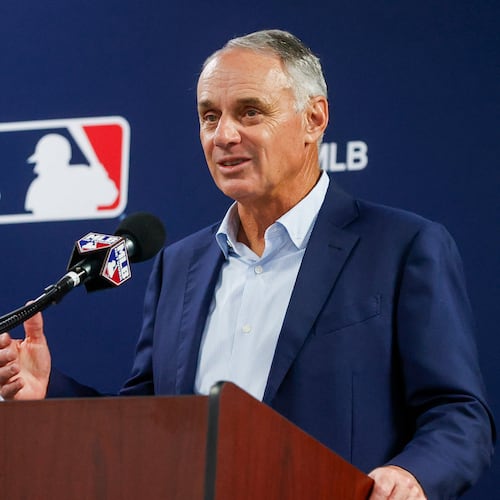“No, I do not have any intentions of expanding Medicaid,” then-Georgia Gov. Nathan Deal said in an Aug. 28, 2012 interview with The Atlanta Journal-Constitution. It was the first of many times that state leaders would spurn Medicaid coverage for low-income adults as intended by the Affordable Care Act.
Also in 2012, “The Avengers” film of the Marvel cinematic universe was in theaters. Thirty Marvel movies have been released since. Instagram, previously only available to iPhone users, launched its app for Android phones in 2012.
Ten years have since passed.
Credit: contributed
Credit: contributed
Over the same decade, Georgia has stood still on this issue. Meanwhile 38 other states have chosen to move forward, putting to rest concerns about the unintended consequences of expanded Medicaid coverage. In fact, we’ve seen overwhelmingly positive outcomes from states that have opted to cover low-income adults in their Medicaid programs. The change increased access to health care services; improved health and financial stability for poor adults; lowered private health insurance premiums in those states and kept rural hospitals open to serve their communities.
Credit: contributed
Credit: contributed
During our state’s decade-long rejection of Medicaid expansion, 8 rural hospitals in Georgia have closed their doors in large part because they treated so many uninsured patients and couldn’t afford to stay open. Expanding health insurance coverage opens an important revenue stream to ensure rural communities continue to have access to care and the economic lifeline that local hospitals provide to rural areas.
All Georgians – not just those in rural areas – would benefit from Medicaid expansion by bringing $3.5 billion in new resources annually to Georgia’s health care system. That flow of new dollars into the state would generate a considerable amount of economic growth and new jobs. Over half of those new jobs would be in health care, increasing access to care for all of us.
In recent years, Georgia’s workers have been the focus of state leaders. Seven in 10 uninsured adults who would gain Medicaid coverage live in a family with a worker and almost 6 in 10 are working themselves. They commonly work in groceries, restaurants, child care centers, hotels, stores and other sectors that keep our communities prosperous and moving forward every day.
Medicaid expansion would particularly benefit small businesses, which employ more than half of those who’d gain coverage.
Until 2021, some opponents hoped that the Affordable Care Act (ACA) -- and with it Medicaid expansion – would be repealed by Congress or struck down by the courts. The ACA survived Congress’s attempt to repeal it in 2017, as well as 3 lawsuits decided by the U.S. Supreme Court in 2012, 2015 and 2021. It’s hard to deny that the ACA and Medicaid expansion are now here to stay.
And yet a central promise of the health care law remains unfulfilled for Georgians – the promise that all Americans would have a pathway to affordable, quality health coverage regardless of how much (or how little) money they have in their bank accounts. A half million uninsured or underinsured Georgians fall into the “coverage gap” because Georgia remains one of a handful of states that haven’t expanded Medicaid.
Importantly, the federal government has demonstrated it would consistently and reliably fulfill its commitment to cover 90 percent of the program costs. We have even seen that financial support grow. Under a new law passed by Congress in 2021, states that expand now will earn bonus incentives for 2 years that more than cover the state’s costs. Today, we are simply leaving billions of dollars on the table meant to improve the health of people in our state.
As many as 77 percent of Georgians support a plan like Medicaid expansion and the idea that the state should provide health coverage to Georgians in need. Our state leaders should be tripping over themselves to approve and take credit for such a popular and high-impact policy opportunity. Medicaid expansion would mean injecting billions of Georgia’s own tax dollars into our local economies, covering 500,000 uninsured Georgians and saving rural hospitals.
Georgia’s low-income, working-age adults have waited 10 years without a pathway to health coverage. They can’t wait any longer. Georgia can’t wait any longer.
Laura Colbert is executive director of Georgians for a Healthy Future. William Custer is retired from Georgia State University, where he was director of its Center for Health Services Research.
About the Author
Keep Reading
The Latest
Featured



